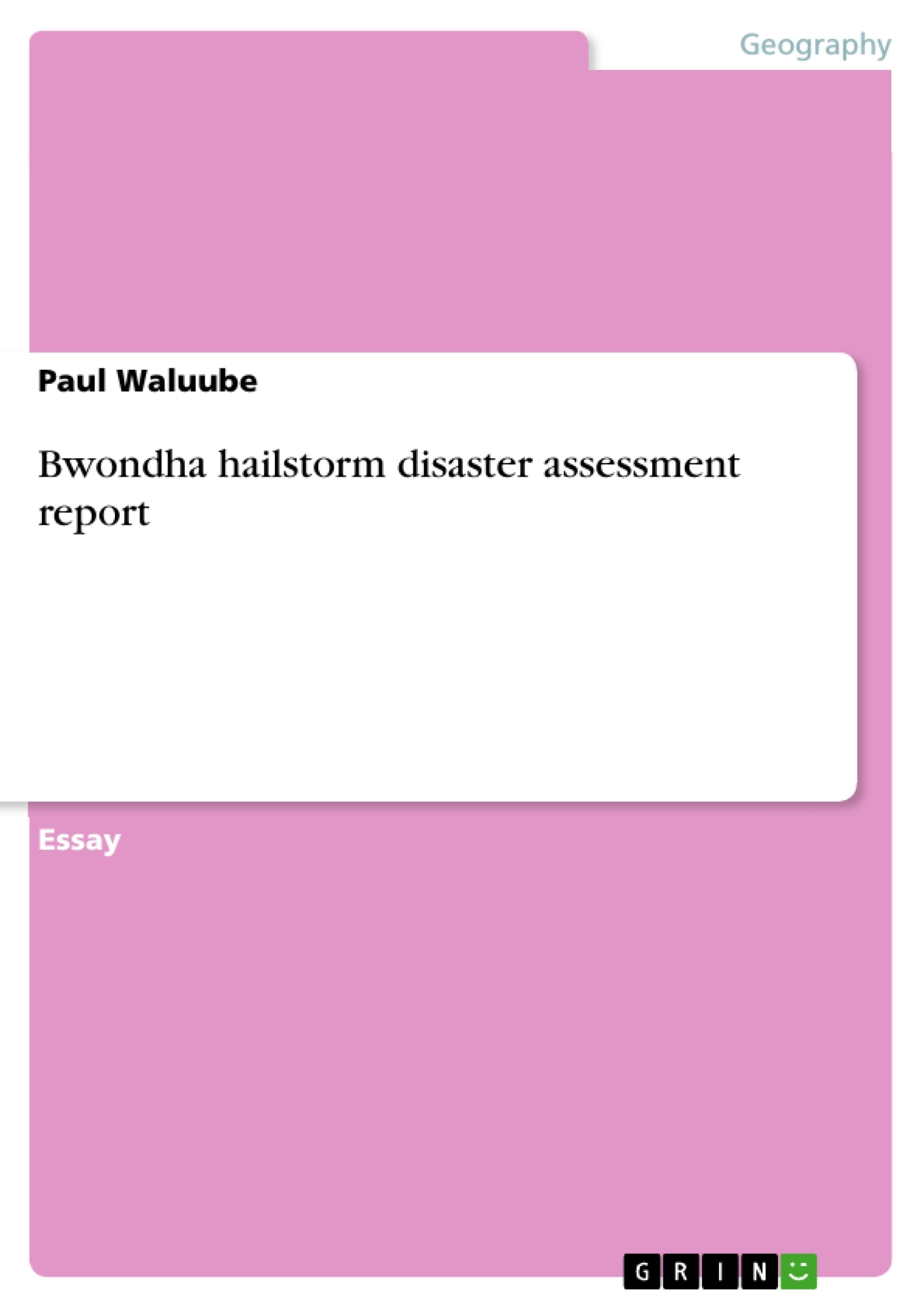Climate change continues to inflict damage to populations in Uganda. In Uganda, Eastern parts of the country that border Lake Victoria were affected by hailstorms.
This is a field report which was written after a field on site observation and personal interviews with households on the lake shores of Victoria at Bwondha landing site. The survey was conducted in May 2015.
Inhaltsverzeichnis (Table of Contents)
- Introduction
- Assessment methodology
- Discussions
- Results
- Trends of hazards/disaster occurrence at Bwondha
- Trends of settlement of affected communities
- Table 1: Time of settlement at Bwondha landing site
- Findings on the nature of effect
- Disaster management status after the effect
- Table 2: Highest education levels of HH heads of affected household
Zielsetzung und Themenschwerpunkte (Objectives and Key Themes)
This report aims to assess the impact of a hailstorm disaster that occurred in Bwondha, Uganda, on July 30, 2016. The report analyzes the causes of the disaster, its impact on the local community, and the current state of disaster management efforts.
- Climate change and its role in exacerbating natural disasters
- The vulnerability of communities to natural hazards
- The impact of deforestation on disaster risk
- The importance of disaster preparedness and response
- The relationship between education levels and disaster resilience
Zusammenfassung der Kapitel (Chapter Summaries)
The report begins by providing background information on Bwondha, highlighting its location, population, and economic activities. The methodology section outlines the approach taken to assess the disaster, including discussions with local leaders and a focus group discussion.
The results section details the findings of the assessment, including the causes of the disaster, which are attributed to both climate change and deforestation. The report also examines trends in disaster occurrence and settlement patterns in Bwondha.
The findings on the nature of the disaster's impact focus on the destruction of houses, household items, crops, and livestock. The report also discusses the challenges faced by Prime Junior Primary School, which was severely damaged by the hailstorm.
Finally, the report examines the status of disaster management efforts in Bwondha, highlighting the lack of preparedness and response mechanisms. The report also explores the potential link between education levels and disaster resilience.
Schlüsselwörter (Keywords)
This report focuses on the following key themes: hailstorm disaster, climate change, deforestation, disaster risk, vulnerability, disaster preparedness, disaster response, education levels, community resilience, Bwondha, Uganda.
- Quote paper
- Paul Waluube (Author), 2016, Bwondha hailstorm disaster assessment report, Munich, GRIN Verlag, https://www.grin.com/document/340686




